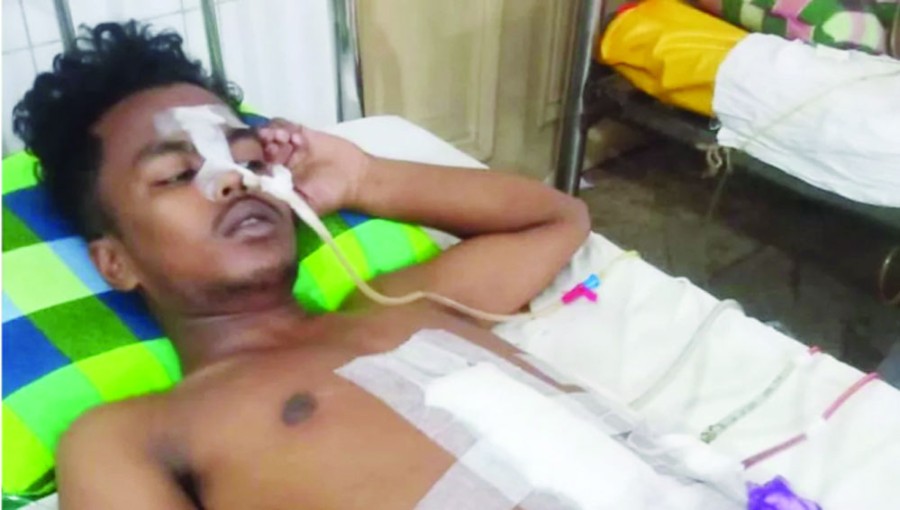Dhaka, Aug 31 (V7N): Mohammad Sifat, a 17-year-old workshop worker, was shot by Border Guard Bangladesh (BGB) personnel on July 19 during the anti-discrimination student movement in Narayanganj. Sifat carried the bullet inside his body for 30 days due to difficulties in locating it.
In a recent interview with BSS, Sifat recounted his ordeal, stating, "The journey for treatment was fraught with challenges, from securing an ambulance to obtaining necessary medicines. The bullet remained lodged in my body until August 18 because doctors had trouble locating it."
After the bullet was finally removed at Dhaka Medical College Hospital (DMCH), Sifat was transferred to Combined Military Hospital (CMH) in the capital on August 24, where he is now receiving treatment for three damaged alimentary canals and a broken bone.
Recalling the events of that fateful day, Sifat explained, "I joined the movement on July 19 with my friends after Jummah prayers. I couldn't just stay at home while my fellow students were being killed on the streets."
He continued, "Within 30 minutes of arriving at the Jhalkuthi intersection near the Signboard area in Narayanganj, I saw BGB and police firing indiscriminately at the protesting students, yet the students continued to move forward despite the gunfire."
Describing the chaos, Sifat said, "People were being shot and screaming for help. I saw someone near me clutching his leg after being hit by a bullet. Later, I learned that he succumbed to his injuries, which was devastating."
Sifat was shot around 4:30 pm at the Jhalkuthi intersection. "When I was hit in the left chest, I initially thought it was a brick, but I soon realized it was a bullet when blood and rice began leaking from my stomach," he said.
"At that moment, I felt all my strength leaving me, and I could barely breathe. My friends had to perform mouth-to-mouth resuscitation to keep me alive," Sifat added.
"I thought I was going to die, trapped between the demonstrators and the police. My friends eventually managed to get me into an auto-rickshaw and rushed me to a local hospital."
However, the local hospital merely bandaged Sifat's wound before referring him to DMCH, where he encountered further challenges. "We only had Tk 6,000, but the ambulance demanded Tk 7,000. I had to wait for an hour until a kind, unknown woman offered the additional Tk 1,000, allowing us to reach DMCH," he said, tears welling up.
"At DMCH, we initially faced neglect and mismanagement, but the situation improved following the success of the student movement," Sifat noted.
Reflecting on his struggles, Sifat said, "From the day I was shot, July 18, we had to cover all expenses ourselves, including medical supplies. I heard that after August 7, those admitted received better treatment due to student pressure."
"My biggest worry is our financial situation. We have already spent around Tk 1 lakh, mostly borrowed, on my treatment. My father, a street vendor selling ceramic products, and I are the sole earners for our family," he added.
END/MSS/































Comment: